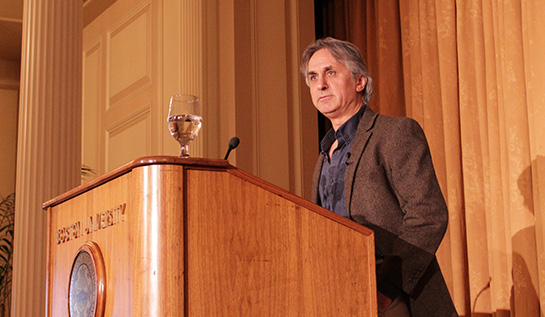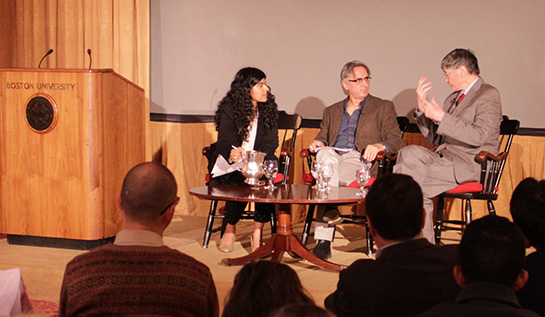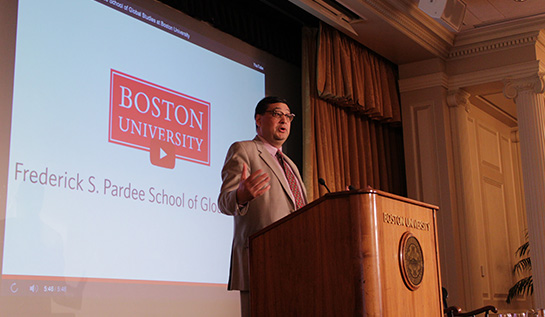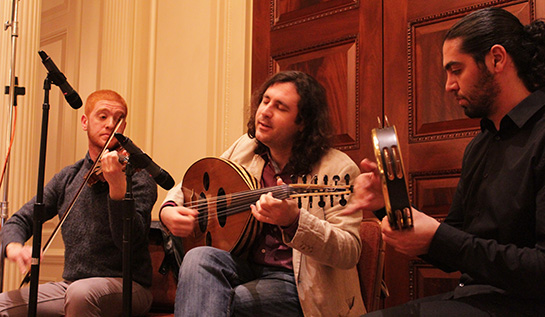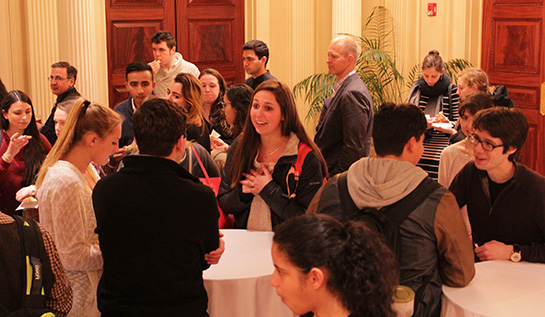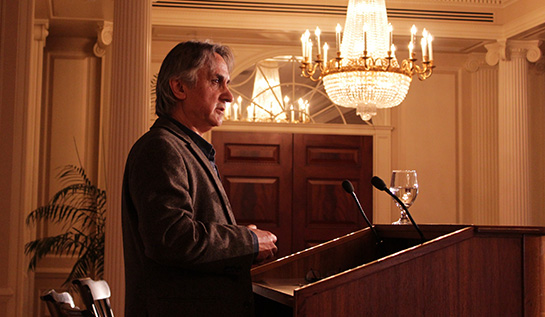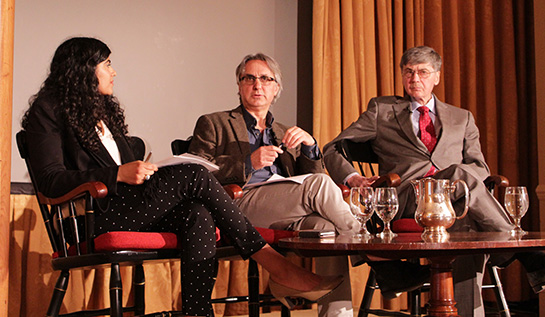Bayat Delivers Inaugural Year Lecture on Muslim Youth
“Alone, youth cannot change the Muslim world.”
That was the provocative premise of author and academic Asef Bayat as he spoke to a capacity crowd in the most recent of the Inaugural Lecture Series at the Frederick S. Pardee School of Global Studies at Boston University.
“One can say the politics of Muslim youth are very contingent. Sometimes they are political in some contexts, some not,” said Bayat. “Analyzing this is our challenge.”
Bayat’s talk, entitled “Muslim Youth and its Politics,” was delivered at the Metcalf Trustees Ballroom in the Questrom School of Business on April 8.
Bayat’s lecture functioned as a keynote for “Youth in the Contemporary Muslim World,” a major international academic conference held at the Pardee School April 8 – 9. The conference, which examines the questions and contexts navigated by modern Muslim youth determining their identity and future, brings together scholars, artists, and thinkers from a multitude of backgrounds and nations.
Bayat described pre- and post-revolutionary politics in Egypt at some length, saying the youth element in the Arab Spring is sometimes oversimplified.
“Youth can never on their own create a breakthrough in revolutionary transformation,” Bayat said. “True change comes when ordinary people join their extraordinary struggles.”
By contrast, the experience in Europe allows youth to explore their youthfulness, particularly for women, but not necessarily their Muslimness.
“This is an issue that we will all have to deal with,” Bayat said.
Bayat is a Professor of Sociology and Middle East Studies at the University of Urbana-Champaign. He is the author of Being Young and Muslim: New Cultural Politics in the Global South and North.
After opening remarks from Pardee School Dean Adil Najam, Professor Augustus Richard Norton introduced the speaker. Later in the program, Assistant Professor Noora Lori, who spearheaded the organization of “Youth in the Contemporary Muslim World,” introduced the conference.
After Bayat’s remarks, guests enjoyed a question and answer session with Bayat, Norton and Lori, as well as a catered reception.
“The most important thing with Muslim youth is to understand where they are coming from,” Bayat said. “It is very frustrating to have to debunk the way Muslim youth are portrayed. Such presentation victimizes them.”
The event also featured a performance by an Arabic musical trio comprised of Kenan Adnawi (oud), Layth Sidiq (violin), and Gilbert Mansour (percussion).
“I came because I am taking a class on global politics, and our professor suggested this event for depictions of how ordinary people can change the world,” said Sara Mejias, an undergraduate major in International Relations. “It was really interesting to learn how people my age are shaping the Middle East.”
The conference is sponsored and co-hosted by the Institute for the Study of Muslim Societies and Civilizations; the Institute for Iraqi Studies; the Middle East and North Africa Studies Program; the Institute on Culture, Religion and World Affairs; the Boston Consortium for Arab Region Studies, the Oxford University Center for Islamic Studies, the American Institute for Afghanistan Studies, and the Frederick S. Pardee School for Global Studies.
